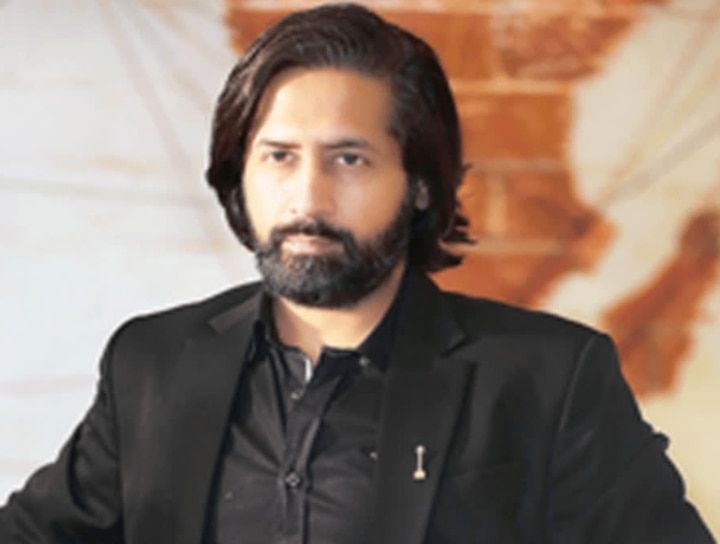Hijab row: HC three-judge bench to pronounce verdict today
Three judge bench comprising Chief Justice Ritu Raj Awasthi, Krishna S Dixit and Justice J.M. Khazi heard the matter at length for 11 days.

Bengaluru: The three-judge bench of the High Court will pronounce the much-awaited judgment on the Hijab controversy today at 10.30 AM.
Three judge bench comprising Chief Justice Ritu Raj Awasthi, Krishna S Dixit and Justice J.M. Khazi heard the matter for 11 days.
Petitions filed by Muslim students of Government pre-university college in Udupi, Bhandarkars’ College in Kundapura challenging the government order dated February 5 banning the wearing of hijabs in schools and colleges. The Government has also ordered that wearing the uniform was compulsory in the colleges where College Management Committee prescribed.
The government order banning hijabs has created chaos across the state. Widespread protests had erupted across the state college authorities have sent back the Muslim students to home those who come to schools and colleges wearing hijabs. The Bhandarkars’ college has closed its gate for Muslim students who come with hijabs.
Protests have spread to other districts in the state, meanwhile, a section of Hindu students have attended the classes wearing saffron shawls. The issues have taken political and religious turns. BJP has openly opposed wearing hijabs in the classrooms, contended that it would violets the public orders and also contended that wearing hijabs is not an essential right of the students.
The three-judge bench has passed an interim order on February 11, restraining all the students regardless of their religion or faith from wearing scarfs, hijab, saffron shawls, or religious flags within the classrooms.
The bench has further observed that the interim order is confined to the institutions where the college development committees have prescribed the student dress code or uniform.
In between the three-judge bench has passed an interim order on February 11 restraining all the students regardless of their religion or faith from wearing scarfs, hijab, saffron shawls, or religious flags within the classrooms.
The bench has further observed that the interim order is confined to the institutions where the college development committees have prescribed the student dress code or uniform.
The bench has requested the state government and all stakeholders to reopen the educational institutions and allow the students to return to the classes at the earliest. The state government has ordered to close the high schools and colleges for three days after hijab row gets widespread protest in colleges across the state.

Contentions before the Court: Senior counsel of the Supreme Court, Sanjay Hegde argued that restraining the students from wearing hijab or head scarf violates the fundamental rights of the students. It not only deny the fundamental rights guaranteed under the Constitution as well as denying the educational rights for them, he argued.
He further contended that the constitutional rights cannot be left to politicians or MPs whether they are in power or out of power. Ultimately it is the Constitution which protects all citizens
"The freedom of certain groups of subjects to determine their appearance and apparel (such as keeping long hair and wearing a turban) are protected not as a part of the right of privacy but as a part of their religious belief," Hegde argued while citing Puttaswamy case in the Supreme Court.
The right to wear a hijab falls within right to freedom of expression, privacy and conscience, he stated He has also briefed the court that, if Advocate General agreed, he will sit with him to work out interim arrangement. “There is 1 operating principle in India - Sometimes we have to kindly adjust.

CDC has no right to decide on uniforms: Senior Advocate Professor Ravivarma Kumar argued for some of the petitioners, stated that College Development Committee (CDC) has no jurisdiction to decide on uniform, the Karnataka Education Act does not given permission to CDC to decide about hijab. He further stated that CDC is an extra-legal committee contrary to the scheme of the Act.
The sum and substance is there is no ban on hijab. The prescription is CDC shall prescribe the uniform. In colleges under Karnataka pre-university committee, the uniform prescribed by College Development Committee has to be followed, Mr. Kumar referred, while reading out government order dated February 6. The govt itself has said they have not decided on the uniform but has constituted a high power committee to go into the question, the GO says.
Section 2(7) of the Karnataka Education Act on the definition of "competent authority". It has not been given any power to prescribe uniform, Mr. Kumar argued while referring to Karnataka Education Act.
Devadatta Kamat’s arguments: Appearing for Muslim students of Bhanarkars' college in Kundapura , Mr. Kamat vehemently argued for the petitioners and challenged the government order dated February 5.
The government order is the foundation based on which colleges are prescribing that headscarf cannot be allowed. If the foundation goes, then rest can't stand. All the three decisions of the High Courts cited by government order are totally against the State, he said.
The government order suffers from total non-application of mind. The entire basis of GO is three High Court judgments which they claim held Hijab is not part of Article 25. I will prima facie demonstrate that it is not so, he contended. the wearing of hijab is the innocuous right of the petitioners prescribed in article 25 of the Constitution., he argued.
The legislation relied upon by State should have the intent to reform. They have relied on Education Act but that law does not show that it is a law that has been enacted to curb hijab or for some social reform. That law should show a specific intent, Mr. Kamat argued.
Wearing of hijab, Rudrakshimala is not a display of religious identity. It is a practice of faith. When I was in school and college, I used to wear a rudraksha on my neck. It was not for displaying religious identity. By wearing it, I felt a link with my creator, a certain degree of protection, he mentioned.
The essence of Article 25 is it protects any practice of faith but not a mere display of religious identity or jingoism. As per the guidance of Supreme Court, if a religious practice is abhorrent then State on ground of public order, health or morality can stop it, Mr. Kamat stated.

AG’s contentions before the bench: Arguing on behalf of the Karnataka government in the High Court on Friday, Advocate General Prabhuling Navadgi said that the government order dated February 5 did not ban the hijab and only delegated the authority to decide the school uniform to College Development Committees (CDC).
"The conscious stand of the state with all responsibility I state that we do not want to intervene in these kind of matters in so far as matter relates to religious symbols issues in the educational institutions," the AG told the full bench of the Karnataka High Court,
Referring to the charges on the petition filed by the Muslim girls claiming the government order on February 5, restricting students from wearing a cloth which can disturb peace, harmony, and law and order, was illegal, and that it was issued without the 'application of mind’, AG Navadgi told the court that the state government took a conscious stand not to intervene in the matter related to religious symbols in educational institutions and has delegated the power of deciding the school uniform to the CDCs, comprising the local MLA.

















